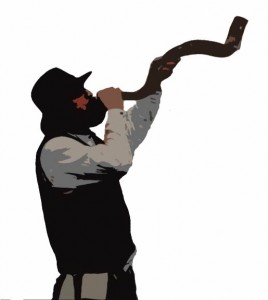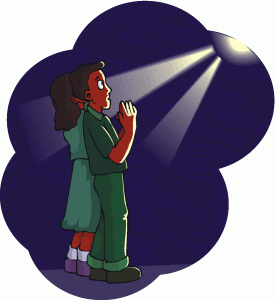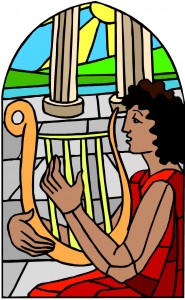A treasure hunt: Read Psalm 19:7–9 to discover what the seven attributes of Torah are. Along with each of the seven attributes are listed the corresponding blessings that come from Torah obedience. What are they?
Tag Archives: Psalms
The Heavens Declare
Psalms 19:1-3
The heavens declare the glory of El; and the firmament sheweth his handiwork. Day unto day uttereth speech, and night unto night sheweth knowledge. There is no speech nor language, where their voice is not heard.
You gotta see this!
Louie Giglio – Nature Singing to God
Introduction to the Psalms
Name of the Book
The Hebrew name for Psalms is Sepher Tehillim meaning “Book of Praises.” The word psalm is the Hebrew word mizmor meaning “melody” and derives from a word to mean “to sing, sing praise, make music.” The English word psalm derives from the Greek word psalmos meaning “a song sung to harp music.”
The Nature of the Book
The Book of Psalms is a collection of devotional materials including prayers, poems, and hymns, some of which were set to music. Worship and praise of Elohim through music is a unifying aspect of this book. The psalms include songs of thanksgiving, hymns of praise, psalms of repentance and confession, psalms that invoke curses upon one’s enemies, psalms sung by pilgrims en route to Jerusalem, and messianic psalms.
Authors of the Psalms
This book contains psalms by at least six authors. David wrote 73 psalms (according to the titles of the psalms) and two others are ascribed to him in the Testimony of Yeshua (Ps 2, see Acts 4:25 and Ps 95, see Heb 4:7). Asaph either wrote or was responsible for preserving 12 psalms (Pss 50 and 73 through 83). The sons of Korah wrote 11 psalms (Pss 42, 44 through 49). Solomon composed two psalms (Pss 72 and 127), while Etham wrote Psalms 89, Moses authored Psalm 90 (and possibly Ps 91), and Heman (Ps 88). Several Psalms have no designated author.
Categories of Psalms
The psalms can be group into four categories:
- Didactic Psalms that give instruction (e.g., Ps 119).
- The Messianic Psalms containing prophecies relating to the Messiah (e.g., Ps 22).
- The Imprecatory Psalms where the servant of Elohim pleads his case before the Almighty pleading for justice for the righteous and punishment upon the wicked (e.g., Ps 109).
- Penitential Psalms expressing the feelings of the repentant heart but also the desire for spiritual cleansing (Pss 32; 38; 51;102; 130; 143).
Other classifications of Psalms include:
- Psalms of degrees or ascent (i.e., Pss 120–134). These are psalms that were sung on special occasions as the priests were ascending the steps of the temple, or that were sung as the Israelites were going up to Jerusalem to celebrate the yearly biblical pilgrimage feasts (i.e. Passover and the Feast of Unleavened Bread, the Feast of Weeks, the Feast of Tabernacles).
- The miktam (or michtam) psalms (Pss 16; 56–60). Though the meaning of the term michtam is unclear, it seems to refer to a psalm that is considered as precious as stamped gold.
The Five Books Within the Psalms
According to Jewish tradition, the Book of Psalms can be divided into five smaller books or sections. They are,
- Book One: Pss 1–41
- Book Two: Pss 42–72
- Book Three: Pss 73–89
- Book Four: Pss 90–106
- Book Five: Pss 107–150
Scholars aren’t sure why Psalms is so sub-divided. One theory is that the five sections correspond to the five books of the Torah (or Pentateuch). Or they may simply be individual collections of psalms that were eventually combined to form the larger book we now have.
Psalm 119 — “O How Love I Thy Torah!”
If you were to open your King James Bible (or any other similar Bible, e.g., NAS, NIV, NKJV, etc.) to the exact middle, where would you land? Somewhere in the Book of Psalms at or near Psalm 119. Actually, by chapters, either Psalm 117 or 118 is the exact center of the Bible—so Psalm 119 isn’t too far off.
Interestingly, Psalm 117 is the shortest chapter in the Bible with only two verses, while Psalm 119 is the longest. In this chapter, David exuberantly declares that all people everywhere should be praising YHVH because of his merciful kindness (or his grace) toward us, and for his truth (i.e., his Word or Torah, which is the biblical definition for truth, see Ps 119:142,151).
The mercy of YHVH and having faith in him is the theme of the first part of Psalm 118. The latter half of the chapter goes on to teach about the salvation of YHVH, and many understand this to be a messianic prophecy pointing to Yeshua, our heaven-sent Savior and Redeemer, who is the Living Torah–Word (John 1:1,14).
Then we come to Psalm 119, which, for 176 verses divided into 22 sections (one for each of the letters of the Hebrew alphabet), extols the supreme and inimitable virtues of the Word of Elohim (i.e., the Torah). David treats the Torah as if he were a jeweler who, after discovering the world’s rarest, largest and most beautiful diamond, carefully and in awe scrutinizes its every facet and all of its unique qualities, and then expresses his unspeakable delight over its supreme virtues. Continue reading
Got a Shofar?
Psalms 81:3, Blow the trumpet [Heb. shofar] at the time of the New Moon [or concealed, covered], at the full moon, on our solemn feast day (NKJV). The ArtScroll Stone Edition Tanach translates this verse alternatively as follows,
Blow the shofar at the moon’s renewal, at the time appointed for our festive day.

The origins of the Hebrew word keseh behind the phrase “full moon” is uncertain and there is debate among the experts on this subject. Some Hebrew lexicons relate it to a Hebrew root word meaning “to conceal, to cover” (Strong’s number H3677 cp. H3678), while others tell us that it is an Aramaic loan word meaning “full moon” (Brown Driver Briggs Hebrew Lexicon).
Orthodox Jewish scholars tell us that keseh means “to conceal or to cover.” They say that the only biblical festival that occurs at the time of the new moon (biblically, when the first sliver of the new moon becomes visible) is Yom Teruah (or Rosh HaShanah), which occurs on the first day of the seventh month (in late summer). At this time, the moon is nearly completely covered or concealed except for a small, visible sliver.
The next phrase in this verse speaks of a solemn feast day, which is the Hebrew word chag. This word refers to the three pilgrimage festivals, which are Passover/the Feast (chag) of Unleavened, the Feast (chag) of Weeks or Pentecost and the Feast (chag) of Tabernacles (Exod 23:14–16; Deut 16:16).
Jewish scholars relate the word chag to Yom Teruah (which they say refers to Rosh HaShanah, see The ArtScroll Tanach Series Tehillim/Psalms Commentary on this verse). The problem with this interpretation is that the Scriptures never call the day of the new moon (rosh chodesh) a chag, nor is Yom Teruah technically a chag either in the strictest sense. Therefore, the word keseh, if it means “concealment” must be referring to both the new moon day (the first day of each month, and to Yom Teruah, which occurs on the first day of the seventh month), while the chag must be referring to the three pilgrimage festivals.
Those scholars who take the word keseh to mean “full moon” say that the phrase in this verse containing this word refers to the pilgrimage festivals (Passover/Feast of Unleavened Bread, Feast of Weeks, and Feast of Tabernacles), which all occurred on or very near the time of the full moon.
Whichever interpretation you side with, the bottom line is this: The Scriptures command us to sound the shofar at the time of the New Moon, on Yom Teruah and during the three pilgrimage feasts. Similarly Numbers 10:10 tells us,
[Sound the shofar a]lso in the day of your gladness, in your appointed feasts, and at the beginning of your months, you shall blow the trumpets over your burnt offerings and over the sacrifices of your peace offerings; and they shall be a memorial for you before your Elohim: I am YHVH your Elohim. (NKJV)
So go get yourself a shofar and join in the fun!
Eagerly Seek YHVH’s Manifest Presence
Psalm 63:1–2, Early [eagerly, diligently] will I see You. Read verse one in the context of verse two. Do we eagerly seek Elohim when we come into his sanctuary? What is his sanctuary (Hebrew: kodesh, which was another name for the Tabernacle of Moses, where the presence of Elohim abode)? Paul said in several places that the saints are now the temple of the Holy Spirit (e.g., 1 Cor 3:16; 6:19; Eph 2:21).
 When David went into the sanctuary, what did he look for? He wanted to see (Heb. to see as a seer in an ecstatic state, to perceive with the intelligence, to prophesy, to perceive with the inner vision, to see a vision) the power (Heb. might, strength) of Elohim and his glory (Heb. YHVH’s manifest presence).
When David went into the sanctuary, what did he look for? He wanted to see (Heb. to see as a seer in an ecstatic state, to perceive with the intelligence, to prophesy, to perceive with the inner vision, to see a vision) the power (Heb. might, strength) of Elohim and his glory (Heb. YHVH’s manifest presence).
What does this all mean? How does this apply to us today? Does Elohim still manifest himself in this way to his people who seek him diligently?
When Was the Shofar Blown in Ancient Israel?
Psalms 47:5, Elohim has gone up with…the sound of the shofar. The shofar is an instrument unique to the ancient Hebrews and their descendants. In the Scriptures, we see that the shofar played a highly significant role in Hebraic culture. Below are some examples this instrument’s importance:

- The very first time the Scriptures
records the blowing of the shofar occurring was to herald YHVH’s giving of theTorah at Mount Sinai (Exod 19:16, 19 and 20:18). - The shofar was blown to usher in Yom Teruah. This was a call to Sabbath rest, a memorial of blowing trumpets, a set-apart convocation and marked the beginning of a ten-day period of self-examination and repentance culminating with the Day of Atonement (Num 29:1).
- The shofar was blown to herald the Day of Atonement (Yom Kippur) to announce the Year of Jubilee. Every fifty years slaves were freed, debts were forgiven and land returned to the original owner (Lev 25:9-10 [verse 10 says, “Proclaim liberty throughout all the land to all its inhabitants” and is inscribed on the Liberty Bell.”])
- Shofars were blown continually by seven priests before the Ark of the Covenant, as part of the battle plan to take the city of Jericho as the Israelites were entering the Promised Land (Josh 6:4–20).
- Shofars were blown by Gideon to rally Israelites soldiers against the Midianites and again by his 300 soldiers in their battle against Midian (Judg 6:34 and 7:8,16,20).
- Shofars were blown to welcome the Ark of the Covenant (representing the anointed and glorious presence of YHVH among his people) while David danced with all his might (2 Sam 6:15; I Chron 15:14).
- The shofar was blown when a king was anointed (1 Kgs 1:34, 39, 41; 2 Kgs 9:13).
- The shofar was blown when the Israelites swore an oath of allegiance to YHVH (2 Chron 15:14).
- The shofar was blown to rally the troops (Num 10:9–10; Neh 4:18, 20).
- Israel sounded the shofar in the time of war to be remembered by YHVH, to be saved from its enemies, and rout the enemies of Israel by sending fear into their hearts and confusion into their camps (Num 10:9–10; Judg 7:20–22).
- The shofar was blown to announce YHVH’s presence and to praise and worship Him (Pss 47:5, 98:6; 150:3; Isa 18:3; 27:13; Rev 1:10)
- The shofar was blown to call people to repentance or fasting (Isa 58:1; Hos 8:1; Joel 2:1)
- The shofar was blown to sound the alarm of war (Jer 4:19, 21; 6:1; 17; 51:27; Joel 2:1, 15).
- The shofar was blown to sound the warning of danger (Amos 2:2; 3:6; Zeph 1:16; Hos 5:8, 8:1; Ezek 33:2-9; Isa. 58:1). The sound of the shofar is compared to a prophet’s voice.
- The shofar was blown by YHVH (Zech 9:14).
- The shofar was blown by the angels (Matt 24:31; Rev 8:2,3; 9:1,13–14; 10:7; 11:15).
- The shofar was blown to announce the coming of a Jewish bridegroom to fetch his betrothed — a picture of Yeshua returning for his bride, the saints. All the righteous living and the righteous dead will receive glorified, resurrected bodies and will meet him in the air at the sound of the shofar. (Compare Matt 24:31; 25:6; 1 Cor 15:52;
1 Thess 4:16; Rev 11:15–18).
When the righteous hear the sound of the shofar these things should be called to remembrance. The shofar is a powerful reminder of the mighty right arm of YHVH outstretched on behalf of his people. The sound of the shofar sends tremors of fear throughout the camp of the enemies of YHVH and his people and rallies the righteous to take courage and to rise up against evil knowing they will be victorious through faith in YHVH Elohim.
When was the first time you heard the sound of the shofar? How did it impact your life? How has the shofar affected your life since then?






